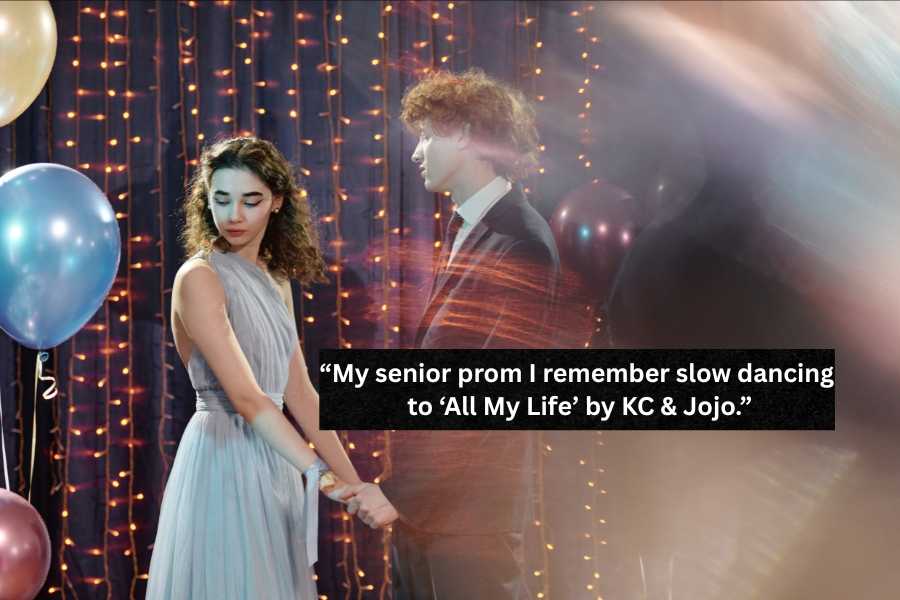It’s no secret that Jewel has been a mental health advocate for more than 20 years. The singer has been open about her own struggles with anxiety, often highlighting music and songwriting as one of her strategies for managing the condition. In 2009 she released Lullaby an album of soft melodic tunes that seem to not only calm a sleepy infant, but anxious adults. It’s been more than a decade since the album’s release and it’s still her most downloaded album.
Year after year people share how listening to the album helps them reign in their anxiety. Armed with that information, Jewel decided to play the album live for a four week series for Mental Health Awareness Month. The artist spoke with Upworthy about creating the “Lullaby Club” series with the Inspiring Children Foundation and her #NotAloneChallenge, which culminates with an in-person community event at Greenhouse in Las Vegas, on May 25.

Jewel explains about the surprising anomaly of the Lullaby album, “It’s been an interesting thing to watch lullaby become this really sort of underground hit that people keep returning to over and over to support their mental health and their anxiety. The stories I hear of college kids using it to study, I have high-powered execs that come home and unwind, listening to the album,” she says.
“And it’s so interesting because I wrote the album for my mental health like, “Angel Standing By,” “Circle Song,” a lot of of those songs I wrote myself when I was really anxious to help regulate my own nervous system so it’s been really neat to see people find the album and use it for that reason and it’s what really inspired me this year just sort of shine a spotlight on it. Just because there’s a lot of tension in the world and I think if we can all find things that help us regulate our nervous system and build community that it can only be good.”

The singer songwriter started having panic attacks in her teens which led her to discovering that she could help to regulate herself by writing and singing this lullaby type music.
“I moved out when I was 15 and I started having panic attacks at that age, but I didn’t know what they were called. You know the word mental health, regulating nervous systems. None of that existed–trauma. There were not those words. I just knew this overwhelming terrifying thing happens to me and I was trying to figure out what do I do about it and I just started writing songs and so it especially would hit me at night.”
It was then that she wrote “Angel Standing By” as a means to soothe her own nervous system, and now that very song is helping others do the same. Being on her own at an early age left her with no one to guide her with what to do with the feelings she was having so she wrote the song to tell herself all the things she needed to hear in those hard moments.
“I would I just write myself what I felt like I was needing to hear it was sort of like making your own medicine and it really worked and I would just sing myself that song over and over and it would really calm me down and then I remember parents telling me that they would have their kids listen to the first album of mine, which was so interesting,” she recalls to Upworthy before adding, “There’s a lot of material on there that I wouldn’t think little kids would be good for. It’s a bit adult, but something about the sound of my voice was very soothing, and I just remembered that and so when it was time to make this album, I wanted it to be something that was soothing for adults and children that would would help them.”
“Lullaby Sundays,” which will be live streamed every Sunday in May is meant to target audience members of all ages and will be available for replay on her own Instagram page as well as the Inspiring Children Foundation’s channels, a foundation that Jewel has been supporting for more than 20 years. The foundation focuses on the mental health of children and was started by Ryan Wolfington at a time when there wasn’t such a focus on childhood mental health, which is one of the reasons Jewel got involved, she explains.

“I wanted to build new habits and that’s how we focus working with the kids and we have tremendous outcomes and we found music to be really powerful and helping because it really can hack your nervous system. And give you and put you in a different frame of mind,” the artist shares. “I’m starting to study it and study the effects of my voice on peoples nervous system and it’s been fascinating to see that it works. You know it’s not…it’s not just antidotal. I’m actually able to start showing that this type of music and the music I’m creating really is affecting people’s nervous system.”
Jewel is hoping that people who participate in the livestream events will take away a sense of community, connection and empowerment that we all have the tools to help calm our own nervous systems.
If you want to check out her livestream the anticipated schedule is as follows:
- Sunday, May 4, 2025 @ [2:30PM PT] – Lullaby Sunday #1: A Lullaby listening party, featuring stories behind each song from Jewel and a discussion on how music affects the nervous system. RSVP here.
- Sunday, May 11, 2025 @ [2:30PM PT] – Lullaby Sunday #2: A conversation with Jewel about managing mental well-being while raising children. RSVP here.
- Sunday, May 18, 2025 @ [4:30PM PT] – Lullaby Sunday #3: A conversation between Jewel and a mental health expert to discuss their personal mental health journeys, as well as tools and practices they use in their daily lives. RSVP here.
- Sunday, May 25, 2025 @ [2-5PM PT] – Lullaby Sunday #4: An in-person event at Greenhouse Smoothie Bar & Eatery in Las Vegas to foster a conversation about mental health, community support, and emotional resilience. RSVP here.
























